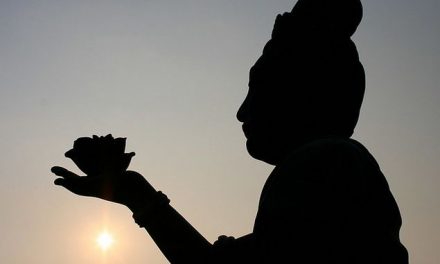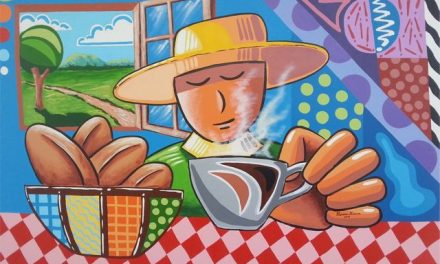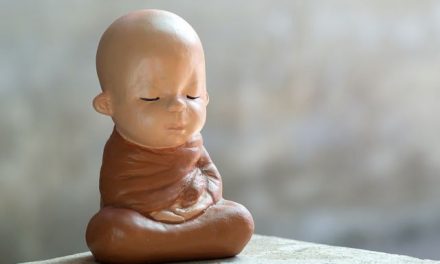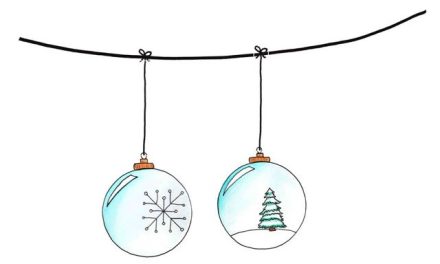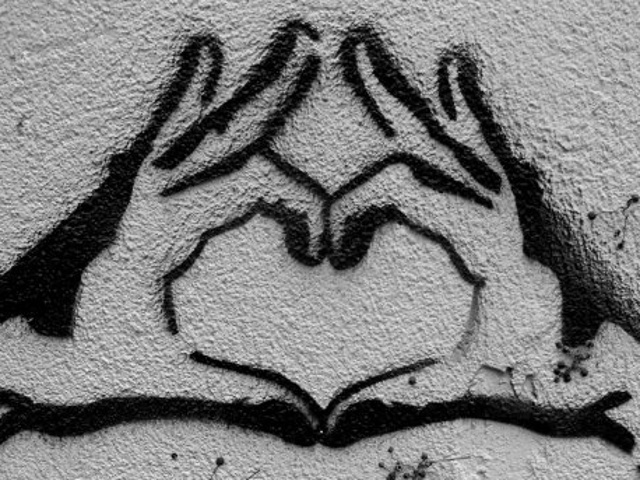
I’ve never been too upfront about being asexual because it’s just a trait; just another wibbly wobbly characteristic dancing around with hundreds of other characteristics. I’ve never felt like I had a solid identity, like a certain trait or pattern characterizes who I am as a whole.
By John Pendall
I’m a fat guy.
That’s part of my self-concept, but I was only able to create that by seeing someone skinnier than I am. If I’d only ever met people larger than me, I’d be a skinny guy—that would be my self-concept. We also learn who we are through reward and punishment. Our acceptable traits are reinforced, and our unacceptable ones are discouraged. Eventually, the culture’s criticizing voice is internalized, and it becomes the twisted dark side of conscience; ever-ready to point out every mistake we make.
Sometimes, discouraged traits go extinct and they’re no longer part of our self-concept. Other times, they become a defining feature of how we see ourselves—especially if the traits are linked to genetics. It’s ridiculously difficult to punish genetic traits into extinction.
In the West, our self-concepts are mostly crafted from traits that set us apart from others, the qualities that make us unique. It’s the opposite in Asia, where self-concepts are based on collectivity, on the things people have in common with one another. I place “community” pretty low on the list when it comes to defining myself. If I were born and raised in Vietnam or even Japan, it’d be much higher on the list.
If you live in the West and have a strong trait that the masses try to snuff out, that trait can become the centerpiece of who you are. Not only does it make you unique, but since so many disapprove of it, it becomes something that you have to defend because losing it would be the equivalent to losing oneself.
Heterosexuality is already a cultural norm; it’s already secured its place among the mundane and unnoteworthy givens of life. The goal is for other forms of sexuality to be just as unnoteworthy. That’s the ultimate goal of most movements that represent the disenfranchised. We tend to argue that movements just create a spotlight on the group that makes it even harder for them to be considered commonplace, but we all know that’s untrue.
Homosexuality and bisexuality are swiftly becoming as commonplace as heterosexuality. In two, maybe three generations, they probably won’t raise many eyebrows in the Northern US. I actually can’t think of one person in my generation (Gen Y) who’s bothered by LGBT orientations. I know a few who don’t quite understand them, but they accept them.
I’m actually not heterosexual.
I’m what the cool kids call asexual, or “Ace.” I didn’t even know it was an orientation until a few years ago. I’m not a huge fan of the word (I mean, I don’t split in half to reproduce), but the contents of the label fit me like a glove. I’ve experimented with men and women, and neither sex really did it for me.
That said, I am physically attracted to women, just not the same way that most heterosexual men seem to be. I can admire a beautiful woman. I’m drawn to women I find attractive, but I lack the urge to reach out and grasp that beauty, to hold it and own it. I don’t even know what that desire feels like; I have no basis for understanding it, no frame of reference to make it meaningful to me. I’ve been to docs, and my blood-work always comes back normal, so I’m not low in testosterone or anything. This orientation stands firm during all of my moods as well, so it isn’t related to stress or depression.
Even when puberty dug its fingers into my childhood, I didn’t feel the same way other dudes felt. I was more interested in having a girlfriend. Sex was an abstract, debilitating possibility. It was debilitating because I wanted to want it because everyone said I should. This dissonance made me all fidgety and self-conscious around girls. So, I thought, “Well, maybe guys then?” Nope. I fooled around with one guy, but I felt more out of place than I did with women because I’m not attracted to men.
I’m what they call a heteromantic ace; I enjoy all aspects of heterosexual relationships, even certain physical aspects, just not the sex. It takes a vast cerebral effort for me to get into it. I have to practically frame the experience in a biographical context, or even a cosmic context. My mind can’t just be in the moment; it has to include my entire history with that woman into the moment. I have to remember the things we’ve done, the things she’s said, the times she’s made me laugh.
That’s the only way I can cultivate any interest in the act itself, and even that’s no guarantee. Without that concentrated effort, my mind wanders, and my body follows. Then, well, I feel ashamed because our culture has conditioned me to feel that way. Before I knew my orientation, inadequacy was part of my self-concept. My partners were always understanding and consoling, but to a man, that somehow makes it more embarrassing. Because our culture, once again, says that men shouldn’t need to be consoled.
It’s hard to break the spell that society’s cast. I’m far more infatuated with women in imagination than I am in actuality.
When I forget that I’m ace, I become the awkward teenager again who feels that he has to feel a certain way. When I remember that I’m ace, that awkwardness vanishes and I can be at ease around women I’m attracted to. This is kind of like mindfulness, which is also used to combat conditioned delusions.
At the same time, the whole thing (sexual orientation) is itself a delusion by Buddhist standards. It’s a delusion because how can there be self-concepts if there’s no inherent self? These traits and characteristics don’t belong to a particular person; they are the person. There’s no being, spirit, awareness, or entity on the inside looking out. No center, no core. This is what sets Buddhism apart from other Indian religions.
It sounds nihilistic or materialistic on the surface, but it isn’t really. It’s the gateway to true joy, warmth, and peace because the self, the “witness,” is the product of clinging and craving, which also causes suffering. This is where Buddhism differs from therapy. The goal of therapy is to improve self-concepts by making them more balanced and healthy.
Buddhism seeks to toss them out altogether, whether they’re balanced and healthy or not. That’s a big picture goal, though.
A healthy and balanced self-concept is great in the short-term. I’ve never been too upfront about being asexual because it’s just a trait; just another wibbly wobbly characteristic dancing around with hundreds of other characteristics. I’ve never felt like I had a solid identity, like a certain trait or pattern characterizes who I am as a whole. That’s why I’ve written under so many different pseudonyms over the years. I’ve never discovered an aspect of myself that’s impervious to change and contradiction.
Asexuality does come close, though. But it seems so basic and matter-of-fact to me that it’s tough for me to make it my identity.
But, who knows? If I get enough hate mail in response to this column, I might start every conversation with, “Hi, I’m asexual. Also, my name is John.” One thing’s for sure, if I ever become a monk, at least celibacy won’t be a huge issue.
Like this article? Try reading: Okay, Cupid…I’m Ready (Maybe)
Photo: (source)
Editor: Dana Gornall
Comments
- Bending Minds and Dogmatic Slumbers: Psychedelic Buddhism - April 1, 2024
- Political Animals: Should Buddhists Be Openly Political? - March 7, 2024
- Why Is Buddhism So Messy? - January 17, 2024

